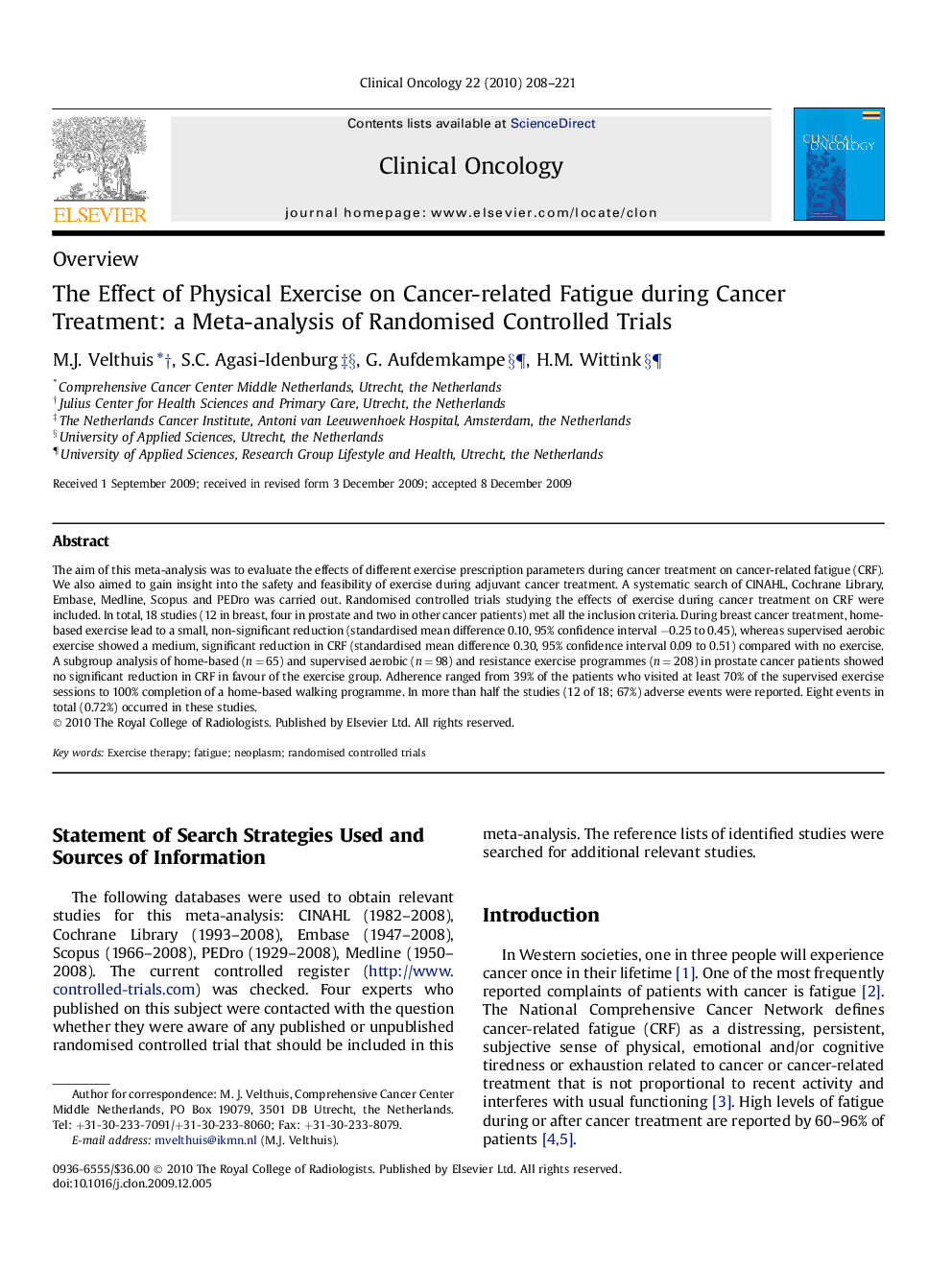| Article ID | Journal | Published Year | Pages | File Type |
|---|---|---|---|---|
| 5699502 | Clinical Oncology | 2010 | 14 Pages |
Abstract
The aim of this meta-analysis was to evaluate the effects of different exercise prescription parameters during cancer treatment on cancer-related fatigue (CRF). We also aimed to gain insight into the safety and feasibility of exercise during adjuvant cancer treatment. A systematic search of CINAHL, Cochrane Library, Embase, Medline, Scopus and PEDro was carried out. Randomised controlled trials studying the effects of exercise during cancer treatment on CRF were included. In total, 18 studies (12 in breast, four in prostate and two in other cancer patients) met all the inclusion criteria. During breast cancer treatment, home-based exercise lead to a small, non-significant reduction (standardised mean difference 0.10, 95% confidence interval â0.25 to 0.45), whereas supervised aerobic exercise showed a medium, significant reduction in CRF (standardised mean difference 0.30, 95% confidence interval 0.09 to 0.51) compared with no exercise. A subgroup analysis of home-based (n = 65) and supervised aerobic (n = 98) and resistance exercise programmes (n = 208) in prostate cancer patients showed no significant reduction in CRF in favour of the exercise group. Adherence ranged from 39% of the patients who visited at least 70% of the supervised exercise sessions to 100% completion of a home-based walking programme. In more than half the studies (12 of 18; 67%) adverse events were reported. Eight events in total (0.72%) occurred in these studies.
Related Topics
Health Sciences
Medicine and Dentistry
Oncology
Authors
M.J. Velthuis, S.C. Agasi-Idenburg, G. Aufdemkampe, H.M. Wittink,
